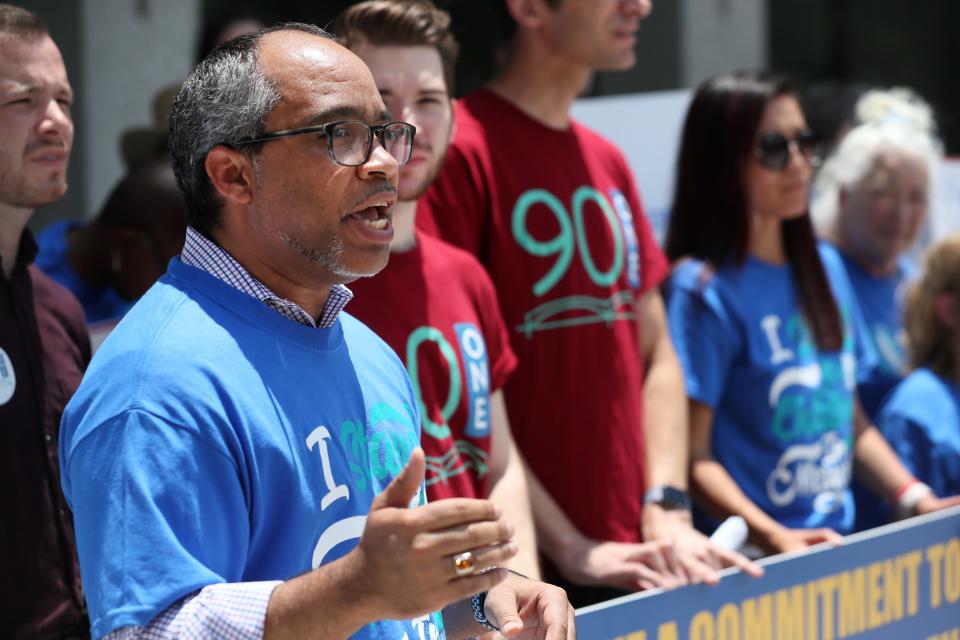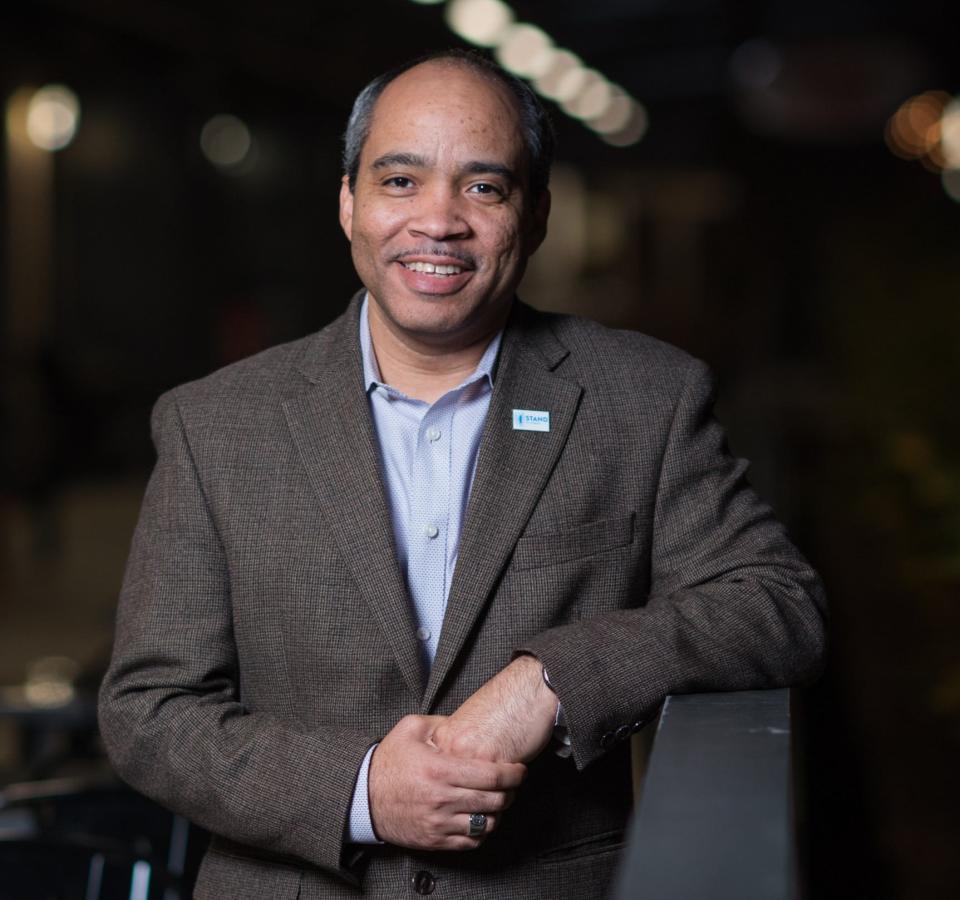How the Justice & Safety Alliance reimagines policing in Memphis | Opinion
All too often, “public safety” is narrowly associated with the criminal legal system and policing. Here in Memphis, public discourse often emphasizes the need for more police, more surveillance, and stricter sentencing in response to violent crime. However, despite the decades of “tough on crime” rhetoric, we have seen devastating violence, adding to the record-breaking homicide numbers over the past two years -- proof that these traditional punitive responses are not doing enough to keep us safe.
This rhetoric is rooted in the idea that these are “quick fixes” to the violent crime challenges facing our city. The truth is that these proposed “solutions” are neither quick, nor are they fixes. Mayor Strickland had an initial goal to address the crime problem by getting the police force to 2,300 officers by 2020. For this effort, the mayor raised over $6 million in private dollars and has invested significant resources from the city budget in recruitment, incentives, bonuses, etc.
Despite those initiatives, the number of police is lower than when the mayor came into office. Now they have set out another set of initiatives, changed the pension back to a plan the mayor voted against as a city councilperson, and will pay international consulting firm Deloitte almost $600,000 to identify solutions to police recruitment. After two full terms for Mayor Strickland (in addition to his time on City Council), his supposedly “quick” solution has yet to be in a position to even give us an idea if it could work.
Hear more Tennessee Voices: Get the weekly opinion newsletter for insightful and thought provoking columns.
We cannot do the same things and expect a different result
While perhaps well-intentioned, the default reaction from Mayor Strickland and others of calling for more police and more punitive prison sentences has failed to make our communities safer. We cannot keep using the same responses to violent crime and expect different results. If we work together with the goal of authentic safety, accountability, support, and healing, we can create an environment where violence prevention is prioritized in a more sustainable way.

It is time to move towards implementing community-identified and community-centered solutions so that public safety includes access to workforce development, affordable housing, reliable public transportation, mental health supports, high-quality public schools, high-speed internet, and other essential services that provide greater opportunities for people to make choices that are not so weighted down by poverty and trauma.
Making investments that get to people before they resort to violence and/or crime will lead us to a place where it will no longer be necessary to spend substantial resources in response to crime that has already happened.
Sign up for Latino Tennessee Voices newsletter:Read compelling stories for and with the Latino community in Tennessee.
How does JSA work?
The Justice & Safety Alliance (JSA) is a coalition of organizations focused on achieving lasting public safety by truly reimagining policing, supporting proactive crime prevention, and increasing investment in safe, strong, and healthy communities.
The JSA has already been engaged in bringing this vision to fruition for Memphis and Shelby County. With the focus on the role of policing in our community, the JSA thought it was important to set out a clear perspective by commissioning independent expert Dr. Duane Loynes (assistant professor of Urban Studies and Africana Studies) to author a report called "Policing Reimagined" to provide history, context, and recommendations around the issues of policing and crime. After the report’s release, the JSA hosted a follow-up town hall with the authors to discuss the report as it pertains to policy and investment solutions in Memphis.
Dr. Loynes’ work shows us that safe communities are not those with the most police, but those in which people have equitable access to the things they need. As a country, we are increasingly relying on police to respond to problems of poverty and social inequity, leading to more frequent and unnecessary contact between law enforcement officers and civilians. This increased police presence results in overcriminalization of communities that have been historically neglected by government and business--more often than not, communities of color.
Sign up for Black Tennessee Voices newsletter:Read compelling columns by Black writers from across Tennessee.
Why community-centered solutions are the best approach
"Policing Reimagined" confirms that increased funding for police budgets does not result in the prevention of crime. In fact, it details a number of evidence-based crime prevention and intervention alternatives proven to be more effective, sustainable strategies for deterring crime and increasing community health and public safety. Specifically, it focuses on three areas where public investment clearly yields greater returns than our current systems of policing: crisis intervention, community violence intervention, and youth justice.

In short, "Policing Reimagined" presents a local roadmap for the role of policing, restorative justice, and healthy communities. The JSA considered the results of this report while developing policy recommendations for the justice sector, which include calling on our elected officials to end the criminalization of poverty, partner with justice-impacted youth in abolishing youth detention and investing in our people and communities.
Some incredible community organizations are already working to make these visions a reality and the Justice & Safety Alliance serves to supplement their efforts with planning alignment, coordination, relevant research, and capacity support.
Too often in the conversation about public safety, community-centered solutions do not take first priority, because they are seen as long-term and end up getting put off until some undetermined time in the future. Yet, given the lack of results from the “immediate” punitive responses that we have experienced and invested in, Memphis and Shelby County must truly commit to reimagining public safety if we are ever to reach the safe, healthy, and thriving community that we all envision.
Natalie McKinney is the executive director of Whole Child Strategies, Inc., and Cardell Orrin is executive director of Memphis-based Stand for Children.
This article originally appeared on Memphis Commercial Appeal: How the Justice & Safety Alliance reimagines policing in Memphis

